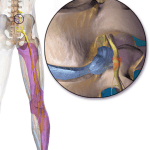
First posted on Karl Keating’s Facebook page. His words will be in blue.
*****
Mine was not a chapter-by-chapter examination, but rather, critiques of five separate portions that I took particular exception to. The series is now done.
Most of the book was taken up with “palace intrigue” and internal affairs of Cardinals, and what Karl calls “administrative or leadership style and actions”, etc. I’ve never had an interest in that, so I didn’t interact with it. I was specifically interested in seeing how Phil would back up the extraordinary claims made in the Introduction. My area of interest is theology, not relationships of high prelates in the Church and who said what and did what.
It’s my opinion that Phil has absolutely not demonstrated that Pope Francis is deliberately trying to subvert or overthrow Catholic tradition. The closest attempt was (in my opinion) some rather poor interpretation of the pope’s homilies. It was like peeling an onion to get to the core. There is none. It’s not like an apple. You keep peeling it and in the end there is nothing at all. The “nothing” in this case was the proof that Pope Francis is a dissident / progressive / modernist bent on ditching orthodoxy.
There were insinuations, however, that the pope is talking out of both sides of his mouth and being two-faced: not saying what he “really” means. Anyone can say that about anyone at any time and attempt to “prove” any theory whatever, with this approach. But I prefer hard and demonstrable facts, not “jesuitical” conspiracy theories.
One person claimed on my page that I was judging people’s motives and putting people into camps of “deplorables.” This is absolutely untrue. I think both Phil and Karl have only the best intentions, are well-meaning, and are saying and doing what they sincerely think is the best course for the Church. I’ve expressed how much I respect both men.
I think they’re wrong, and seriously so, and I believe the consequences will be quite bad, but I’m not questioning their motives or making out that they are “bad” people at all. Just for the record . . . If anyone reading this hears otherwise, it’s not true. You heard it from me.
Nor have I ever said that Phil is a reactionary. I have said he thinks like them in two respects (but not all respects). That remains my opinion after having read the book.
If you like to eat steak and walk around the block, it doesn’t prove that you are a dog . . .
“Straw man: an intentionally misrepresented proposition that is set up because it is easier to defeat than an opponent’s real argument”
Where in Lawler’s book does he say that his purpose is to show that Pope Francis is trying to “overthrow Catholic tradition”? Catholic tradition is a pretty big thing, not easily overthrown by one man, no matter how astute or clever.
Or maybe you have misconstrued what Lawler is trying to say.
You cited his relevant words in this regard in your own review, Karl (and this was why I wanted to critique the book):
I did my best to provide assurance—for my readers and sometimes for myself—that despite his sometimes alarming remarks, Francis was not a radical, was not leading the Church away from the ancient sources of the Faith. But gradually, reluctantly, I came to the conclusion that he was. . . .
I found I could no longer pretend that Francis was merely offering a novel interpretation of Catholic doctrine. No, it was more than that. He was engaged in a deliberate effort to change what the Church teaches.
I describe these words as “deliberately trying to subvert or overthrow Catholic tradition” and I say that Phil didn’t come within a million miles of proving this in his book.
“what the Church teaches” = “Catholic tradition.” Or is that a point of contention, too?
Lawler seems to have forgotten what appeared to be his central thesis in the introduction. He used a mere argument from silence regarding the homily that shocked him so much and changed his mind about the pope.
The “reasoning” was that “Pope Francis didn’t directly assert x in this one homily; therefore he must deny x.” That’s hardly persuasive, and no basis whatsoever to conclude that a pope is “leading the Church away from the ancient sources of the Faith” and “engaged in a deliberate effort to change what the Church teaches.” I demonstrated, from what Pope Francis did say in several places, that in fact he does not deny x.
Then he made much hay out of five of the pope’s words (“who am I to judge?”): isolated and taken wildly out of context, to imply that the pope supposedly espoused serious homosexual sin. Again, I found several other utterances that absolutely proved that he didn’t do that, either.
Then he cited the paraphrased recollections of a 90-year-old atheist journalist, to insinuate that the pope denied the doctrine of hell. It was easy to find many instances of Pope Francis’ direct assertions of eternal punishment in hell. But let’s go by one paraphrase of a recollection instead . . . The same journalist is now out there saying that the pope denies heaven and purgatory, too. Even the pope’s severest, most relentless critics don’t make those bizarre claims.
Then he engaged in a rather “inventive” interpretation of another homily and made out that Pope Francis questioned whether St. Peter and St. James were “believers.” So he tried here and there but none of these attempts were anywhere near compelling. They were not even plausible at all, in my opinion, as one who has intensely engaged in debates about theology for 35 years.
It was very heartening, at least, insofar as I saw that if this is considered the best shot against the pope, then the case is pathetic indeed. It reminded me of the ongoing efforts from Protestants and Catholic liberals to try to prove that Honorius officially promulgated heresy. That’s considered the best historical case against papal infallibility, and yet it proved no such thing (only private letters were involved).
Likewise, terrible arguments like the ones above prove absolutely nothing against this pope. Phil should have stuck solely to the palace intrigue and gossipy “talk”: do the National Enquirer thing. That’s subjective enough that folks can say little against it, even if they have an interest in the topic (as I don’t).
***
Here is Karl Keating’s “review” of my reviews:
In my review of Lawler’s book I endorsed the book as a whole but not everything in it. This is common in book reviews–and even in judgments of individuals.
Some of Lawler’s arguments I found not entirely convincing, and he emphasized some matters that I think deserved less emphasis and under-emphasized other matters that I think should have had more emphasis. (I think too many pages were devoted to the synods and AL, for example.) There were several paragraphs where I winced at the tone and wish he had run the text by someone (maybe even me) before going into print.
In other words, I didn’t write his book. The only books I agree with completely are my own, plus maybe a few others. I can endorse a book without endorsing everything the author says. Over the years I’ve endorsed several of your books even though I thought you had weak arguments on some points.
In fact, I can endorse your current series of critiques of Lawler’s book, even though I think the critiques, so far, have been awkwardly composed, hard to follow, and often not the least convincing. That’s my opinion; others may think them faultless. Fine. I don’t have to think them faultless to think people should read them.
I don’t think you’ve approached Lawler’s book with anything close to objectivity. You have brought to the discussion a certain mindset (I called it “ostrichism”) that makes it difficult for you to give an arm’s length look to the book or its arguments.
You seem to take it as axiomatic that criticism of a pope equals disobedience to him. You and others write as though obedience and agreement are the same thing, which they’re not. (I think you’ve been misapplying Newman, by the way.)
I suppose my main point here is two paragraphs earlier: you have approached the book with an agenda. While no reviewer ever is purely objective, it’s helpful that objectivity be approached at least asymptotically. I don’t think that’s been the case with you in this regard. That makes you a less-than-ideal commenter on the book, because you bring to your comments too much of your own baggage.
I would like to see Lawler’s book be critiqued by others who don’t labor under such a disability.
Since this is mostly psychobabble and doesn’t address the actual arguments I make, there is no particular need to reply to it. There’s nothing here to reply to. It’s utterly obvious that Phil Lawler and Karl Keating are as “emotionally” against Pope Francis as I am “emotionally” inclined to not like Phil’s book, so why should “bias it be an issue? It’s a wash. In the end, the arguments themselves are all that can be objectively examined.
*
*
*
(originally 1-7-18 on Facebook)
Photo credit: The Good Shepherd, by James Tissot (1836-1902) [public domain / Wikimedia Commons]
***













